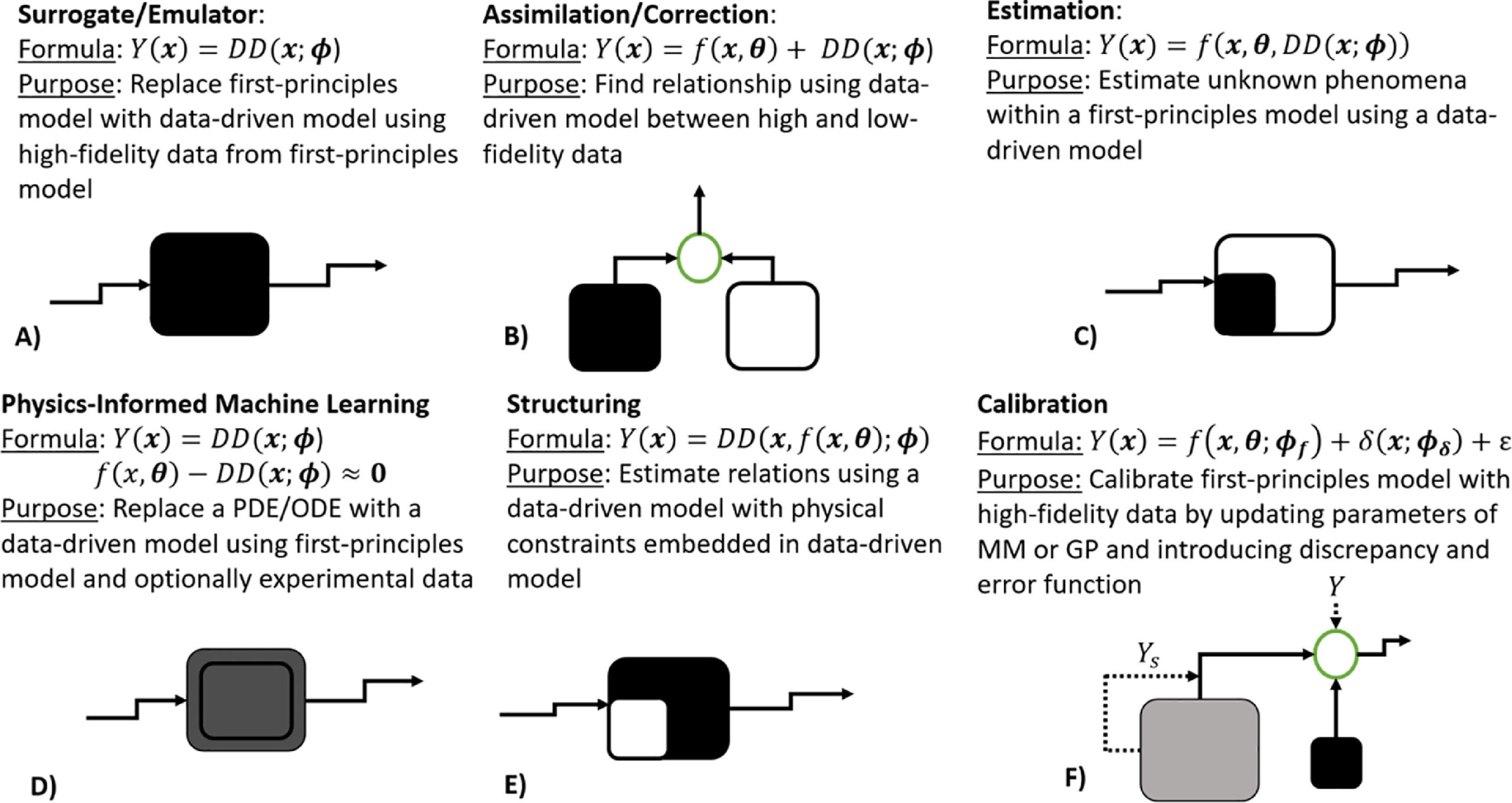Data-driven Process Systems Engineering Lab
Perspectives on the Integration between First-Principles and Data-Driven Modeling
Computers & Chemical Engineering 2022

Efficiently embedding and/or integrating mechanistic information with data-driven models is essential if it is desired to simultaneously take advantage of both engineering principles and data-science. The opportunity for hybridization occurs in many scenarios, such as the development of a faster model of an accurate high-fidelity computer model; the correction of a mechanistic model that does not fully-capture the physical phenomena of the system; or the integration of a data-driven component approximating an unknown correlation within a mechanistic model. At the same time, different techniques have been proposed and applied in different literatures to achieve this hybridization, such as hybrid modeling, physics-informed Machine Learning (ML) and model calibration. In this paper we review the methods, challenges, applications and algorithms of these three research areas and discuss them in the context of the different hybridization scenarios. Moreover, we provide a comprehensive comparison of the hybridization techniques with respect to their differences and similarities, as well as advantages and limitations and future perspectives. Finally, we apply and illustrate hybrid modeling, physics-informed ML and model calibration via a chemical reactor case study.
Link to Publication